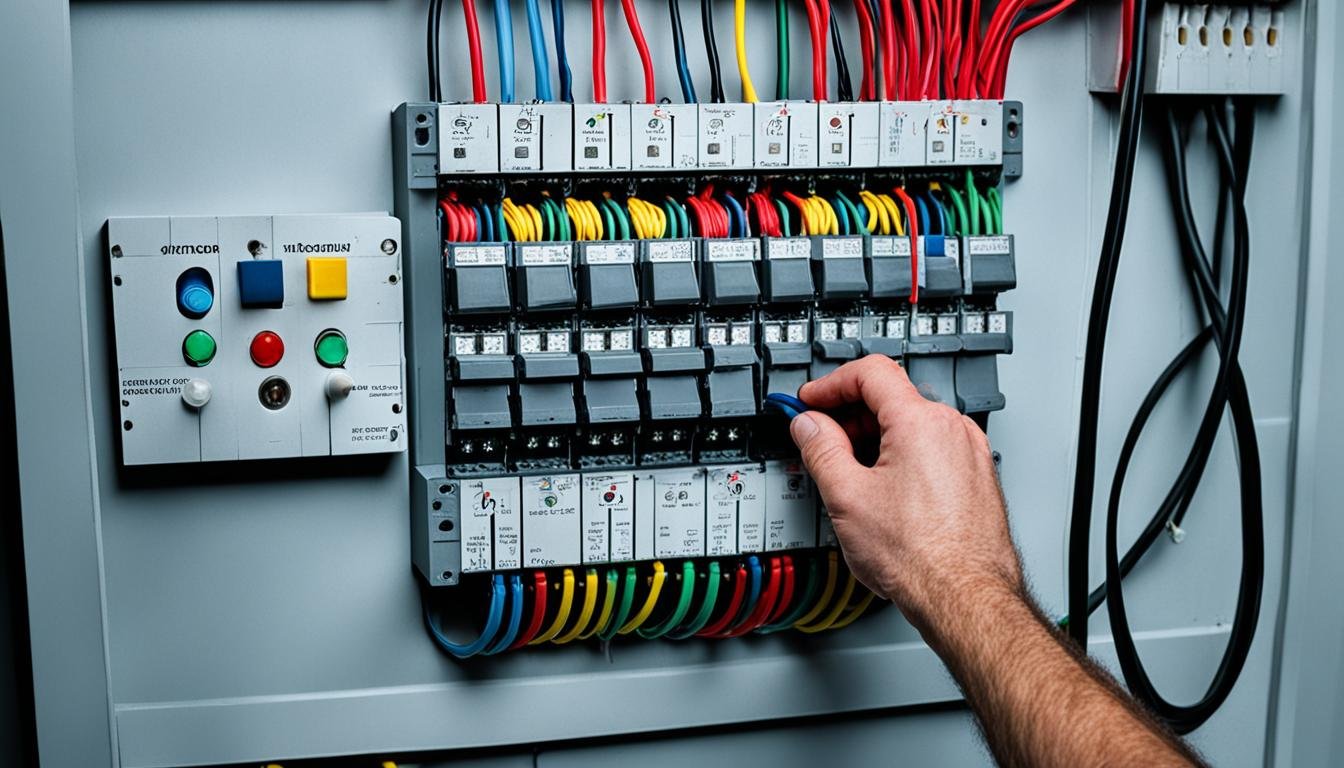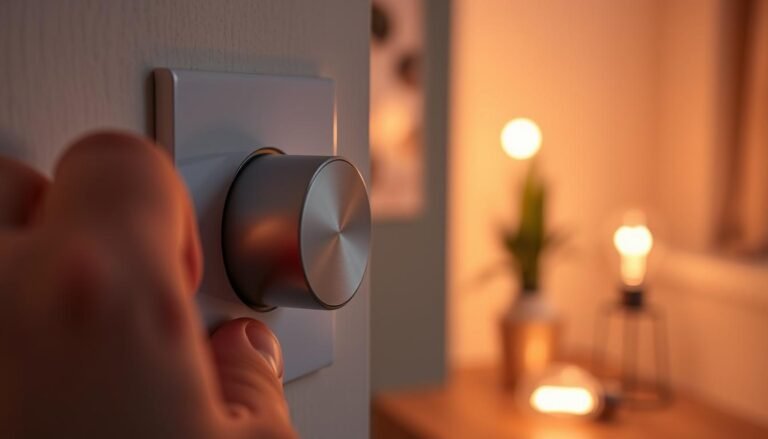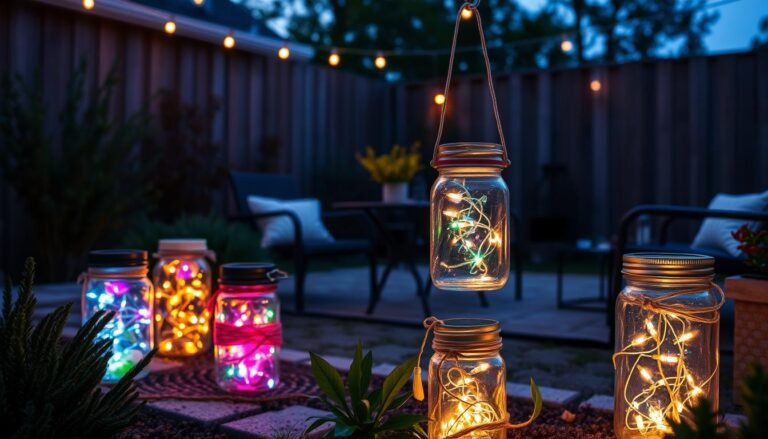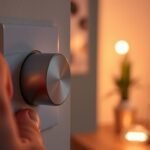Affiliate Disclosure: This post may contain affiliate links. If you make a purchase, we may earn a small commission at no extra cost to you.

Did you know a standard 15-amp circuit handles up to 1440 watts?
This means you can light up 14 big incandescent bulbs or 22 energy-saving 65-watt lights.
But, the actual amount of lights allowed on it changes.
But, how many lights can be on a 15 Amp circuit?
This depends on the bulbs you use, their wattage, and how much other electrical components are on the circuit.
It’s key to plan well and know the circuit’s limits for a safe and bright home.
Key Takeaways
- A 15-amp circuit can power up to 1440 watts, enough for 14 high-wattage incandescent bulbs or 22 energy-efficient 65-watt lights.
- The number of lights depends on the wattage of the bulbs and the overall electrical load on the circuit.
- Going over the circuit’s limit can cause the breaker to trip and fire risks.
- Calculating light loads and not exceeding 80% of the circuit’s capacity is essential for safety and energy saving.
- Using different bulb types, like incandescent, LED, and CFL, lets you put more lights on the circuit.
Understanding Circuit Capacity
Learning about electrical circuits is key, especially their amperage rating and capacity. You should match the ratings on receptacles with the circuit’s rating. Let’s say you have a 15-amp circuit. Normally, each light or outlet needs around 1.5 amps. So, a 15-amp circuit can run about 10 devices. But, sometimes it may vary.
Amperage Ratings and Circuit Breakers
The NEC doesn’t say a specific limit for lights and outlets on a 15 amp circuit. In many places, you can add as many as you need. But, check your local rules first to be safe with electrical codes. This step is crucial before starting any work.
Calculating Lighting Load
For estimating light fixtures on a 15-amp circuit, use the formula: watts = volts x amps. So, this circuit can power 1440 watts. Then, divide by each bulb’s wattage to find the max bulbs you can use.
Check out our FREE Calculators on our Resources Page
National Electrical Code Compliance
Remember, the NEC might not limit devices on a 15-amp circuit, but local regulations could. Always follow your area’s electrical safety rules and guidelines. Make sure you know your local requirements for lighting setups.
How Many Lights Can Be on a 15 Amp Circuit?
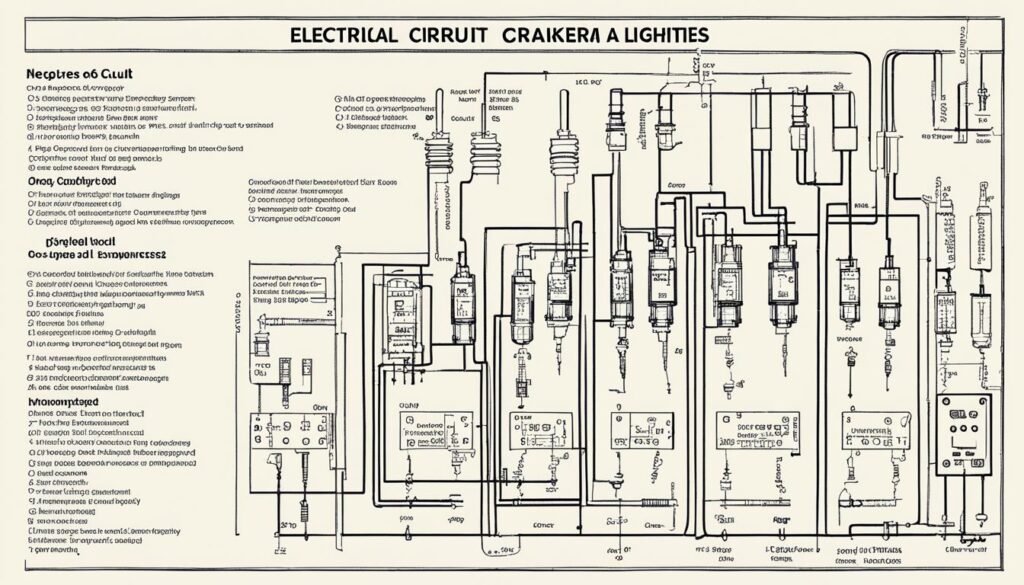
A circuit should not have too much load for safety. Keep lighting fixtures to 12 amps on a 15-amp circuit. To find how many light fixtures are safe, use watts = volts x amps. This 15-amp circuit can handle 1440 watts. Divide this by bulb wattage to find the max bulbs. For example, you could use up to 144 10-watt, 120V LED light bulbs.
| Bulb Type | Wattage Range | Maximum Bulbs on 15-Amp Circuit |
|---|---|---|
| Incandescent | 40-100 watts | 14-36 bulbs |
| Compact Fluorescent (CFL) | 9-25 watts | 58-160 bulbs |
| LED | 4-20 watts | 72-360 bulbs |
LED Lights: Energy-Efficient Luminaires
LED bulbs save a lot of energy because they use fewer watts than incandescent bulbs but still shine brightly. This means you can put more LED bulbs on a circuit without overloading it. So, you get to light up more spaces without worry.
LED Wattage Considerations
When you think about different bulb types on a circuit, you need to look at their wattage. This is important because various bulbs need different amounts of power.
Maximizing LED Light Count
You can mix different types of lighting on one circuit. Just make sure the total wattage stays under what the circuit can handle. Also, remember to never go over 80% of the circuit’s capacity for safety.
Incandescent Bulbs and Circuit Loading
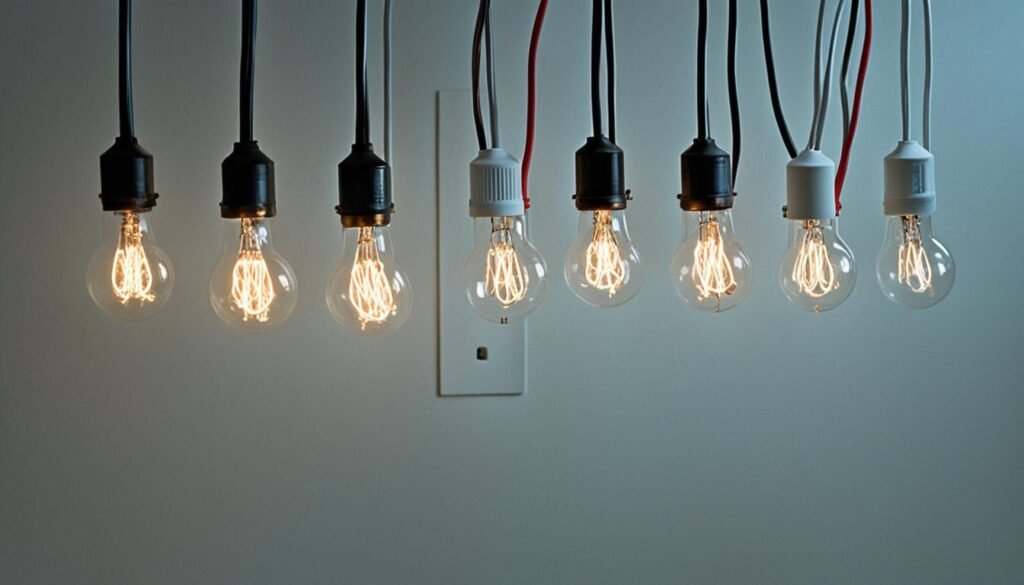
Incandescent bulbs use more energy than LEDs and CFLs. They often have higher wattages. This can overload a 15-amp circuit when powered by 120V.
High Wattage Impact
Bulbs like these can be 60 to 100 watts. This quickly eats up the circuit’s power, limited at 1,440 watts. About 19 bulbs at 75 watts each is the max.
Limitations on Incandescent Bulb Count
Because of their high wattages, fewer incandescent bulbs can be used. LEDs and CFLs are much more efficient. Going over the circuit’s limit can cause problems like overheating and fire.
Compact Fluorescent Lamps (CFLs)

Compact fluorescent lamps (CFLs) are a step up from incandescent ones in efficiency. They use less energy. So, you can have more of them on a 15 amp circuit safely. Remember, the number of lights you use must not go over the circuit’s limit.
The total number of CFLs you use on a 15 amp circuit is decided by their wattage. Plus, you must consider the current lighting load on the circuit. Keeping within 80% of the circuit’s total capacity is advised. This way, you avoid safety issues and keep everything efficient.
CFL Wattage and Efficiency
CFL bulbs save more energy than traditional incandescent ones. They need 25-35% less power to provide the same brightness. This means you can add more CFL bulbs to your lighting without worry. They are easy on your electrical system.
Balancing CFL Count and Circuit Capacity
How many CFL light bulbs you can use on a 15 amp circuit depends on their wattage. And also, on the total lighting load. To stay safe, it’s best to use less than the circuit’s full capacity. This helps avoid power issues and ensures you stick to regulations.
Combining Lighting Types on a Circuit
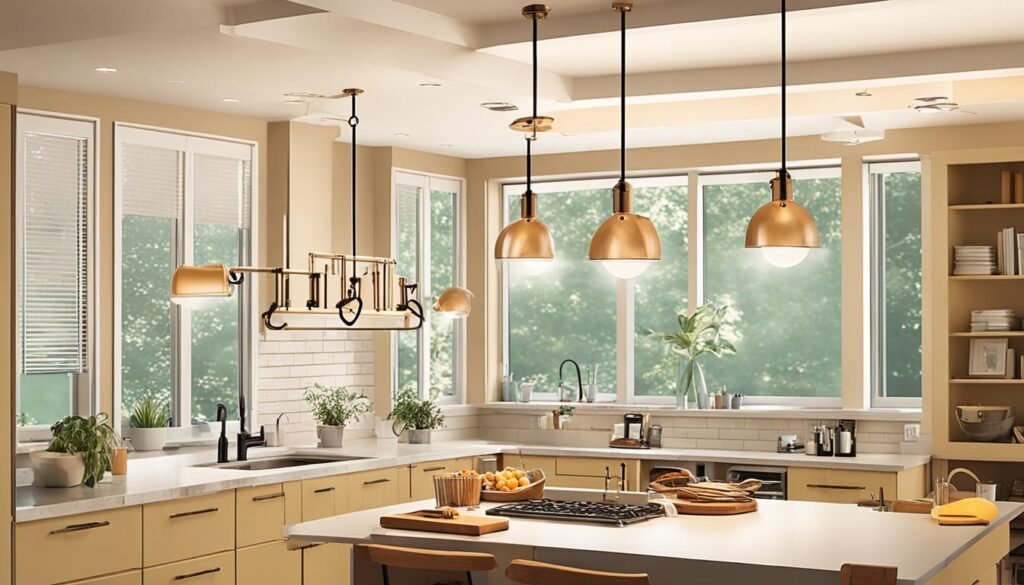
When you choose various types of bulbs for a 15-amp circuit, think about wattage. Also, think about how many bulbs you can use safely. Incandescent bulbs, LEDs, and CFLs need different amounts of power. You can mix different types on this circuit if the total load stays within the limit.
| Lighting Type | Typical Wattage | Potential Bulb Count on a 15-Amp Circuit |
|---|---|---|
| Incandescent | 40-100 watts | Approximately 19 bulbs at 75 watts each |
| LED | 10-30 watts | Up to 144 bulbs at 10 watts each |
| CFL | 13-26 watts | Depends on wattage, but generally more than incandescent |
The number of bulbs you can add depends on their wattage. And it also depends on the circuit’s load capacity. Remember to stay under the 80% limit to stop circuit overload. This keeps things safe.
Electrical Safety and Circuit Overload Prevention
It’s not safe to go over 80% of a 15 amp circuit’s capacity. Doing so can cause the circuit breaker to trip or even start a fire. Keeping the usage under this limit is key to staying safe.
Identifying Overload Signs
As you add more lights and electrical devices, watch out for overload signs on a 15 amp circuit. Signs can be lights that dim or flicker, switches that feel warm, and circuit breaker trips. If this happens, cut back on what’s plugged in to keep things safe.
Circuit Breaker Tripping
A circuit breaker that often trips shows the circuit is overloaded. It stops the circuit from getting too much power and prevents damage. If this happens a lot, it might be time to divide the power use on different circuits. This keeps your home’s wiring and safety in check.
Wiring Considerations for Lighting Circuits
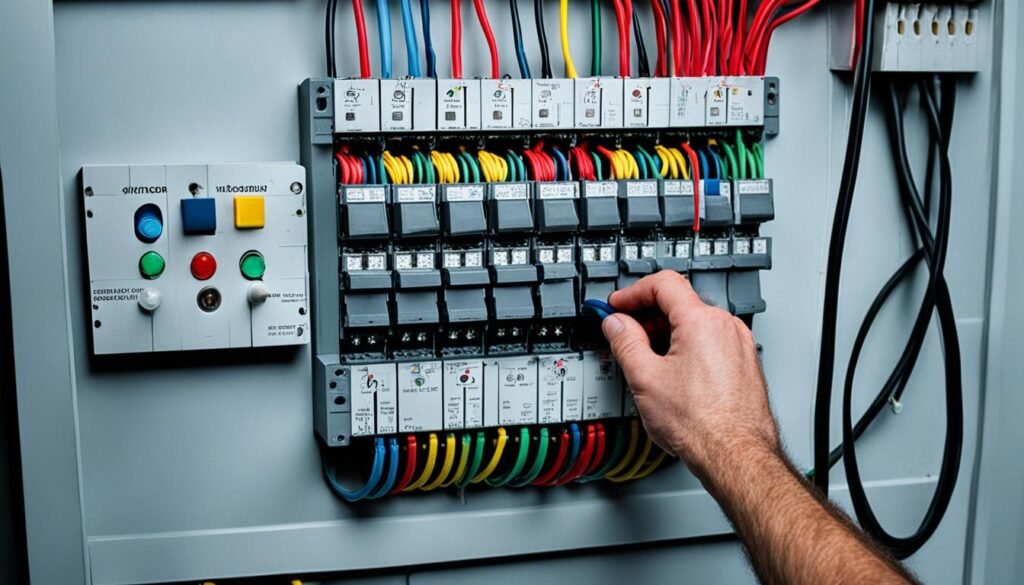
When making electrical circuits for home lighting, picking the right wire gauge and ampacity is key. This ensures they work safely and well. The National Electrical Code (NEC) helps you match the correct wire size to the right circuit breaker capacity and lighting load.
Wire Gauge and Ampacity
Wire gauge shows how thick the wire is, affecting how much current it can hold safely. For a 15-amp household wiring circuit, you can go with either 14-gauge (14GA) or 12-gauge (12GA) wire. They both work for the job.
Mixing Wire Gauges
But remember, mixing 14GA and 12GA in the same 15-amp circuit puts the 15-amp circuit breaker in charge of the whole thing. Even the 12GA wire, which usually handles 20-amp circuits, counts as 15-amp. This method is okay, as long as the lighting load and power consumption stay under the 15-amp circuit breaker capacity. This keeps the setup safe and efficient.
Energy Efficiency and Lighting Load Calculations
When you look at different light bulbs for a 15-amp circuit, you need to think about wattage and the number safe to use. Incandescent, LED, and CFL bulbs all need different amounts of power. You can mix these types on one circuit, but be sure not to use more than it can hold.
The amount of bulbs you can add depends on their wattage and the circuit’s capability. It’s best to keep the load within 80% of the limit. This avoids issues like tripping the breaker or starting a fire. By managing the load, you keep your place safe and use energy well.
Figuring out the most lights for a 15-amp circuit involves checking bulb power, the circuit’s rating, and NEC rules. Doing this properly helps you use lighting that’s energy-saving yet safe for your home’s wiring.
FAQ
How many lights can be on a 15 amp circuit?
What factors determine the number of lights on a 15 amp circuit?
How can I calculate the maximum number of light fixtures on a 15 amp circuit?
How do different types of light bulbs impact the number that can be used on a 15 amp circuit?
Can I use a combination of different light bulb types on a 15 amp circuit?
What are the risks of overloading a 15 amp circuit?
What do I need to know about wire gauges and mixing them on a 15 amp circuit?
Check out our FREE Calculators on our Resources Page

